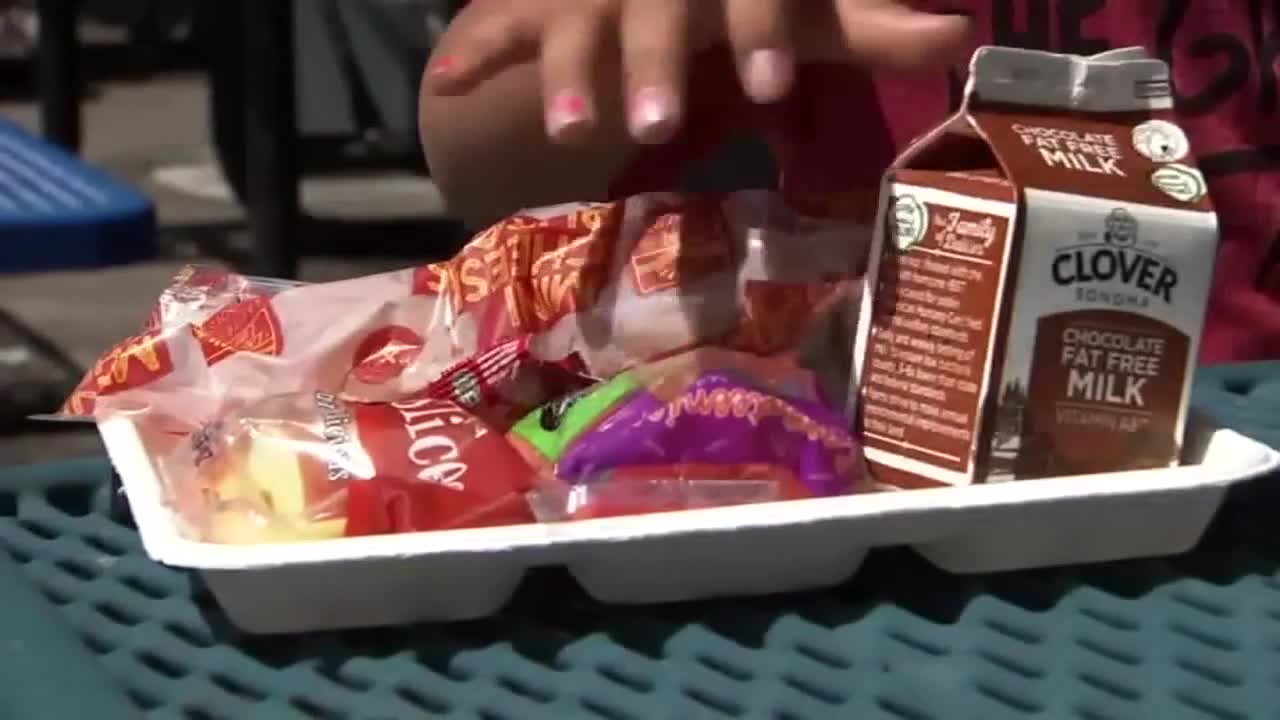LAFAYETTE, La. — Louisiana is among several states re-evaluating the food served in school cafeterias.
A bill passed during the 2025 regular session lists 15 specific ingredients that public and state-funded nonpublic schools, the bill prohibits serving food or beverages containing 15 specific ingredients, including various artificial colors, preservatives and artificial sweeteners. It also requires schools to purchase locally produced food - but only if it's possible.
During a committee discussion, the author of the law, Sen. Patrick McMath, R-Covington, discussed the national focus on nutritional health.
"The nation is waking up to the importance of what we are putting into our body and what we are surrounding ourselves with," he said during the meeting.
KATC spoke with Pediatric Registered Dietitian Dylan Camardelle at Our Lady of Lourdes about the push to improve the way students eat.
“This is a local, statewide approach to a national movement to reduce processed and ultra-processed foods in our school lunch and breakfast programs,” he explained. “It's health promotion; it's a public health intervention.”
Camardelle also says the law could help improve nutrient-dense diets for students.
The 15 ingredients, additives, or dyes will be banned from breakfast and lunch menus when the law takes effect. They include several food dyes, preservatives, artificial sweeteners like Equal and Splenda, and a bleaching agent used in flour.
McMath said his objective is to prioritize young students’ health.
“Eighteen percent of teens have fatty liver disease, nearly 30 percent of teens are pre-diabetic, and over 40 percent are overweight or obese,” he said. “These are teenagers.”
However, the jury is out in the scientific community about the impact of these additives on health. Rutgers University has done a lot of research on it; to read about that, click here. In that article, a professor in the School of Public Health said that "taking petroleum-based food dyes out of our food supply certainly can’t hurt and may have some health benefits, but it is unlikely to appreciably reduce the burden of chronic disease in the United States."
MD Anderson also has addressed the issue of dyes and additives; to read about it click here.
Camardelle said he's hopeful the law will encourage the inclusion of more fruits and vegetables while reducing fats and added sugars. To read the law for yourself, scroll down.
“The processing of these foods and things that are served in the cafeteria— they will have more whole nutrients, more whole grains, and more whole cuts of meat. It won’t be processed 50 times,” he stated.
Additionally, the bill mandates that certain medical professionals (advanced practice registered nurses and physicians in various specialties) must complete one hour of continuing education on nutrition and metabolic health every four years.
The bill requires food manufacturers to label products containing over 40 specific ingredients with a QR code linking to detailed ingredient information, and mandates that food service establishments inform customers about the potential use of seed oils in their menu items.
The bill's provisions will be implemented in stages, with school-related changes beginning in the 2028-2029 school year, continuing education requirements starting in January 2026, and food labeling requirements taking effect in January 2028.
We reached out to the state Department of Education to find out what impact the law has had on their policies and procedures.
They sent us several rules that were added to Bulletin 741:
F. Beginning with the 2028-2029 school year and beyond, no public school governing authority or nonpublic school that receives state funds shall serve any food or beverage containing a prohibited ingredient identified in R.S. 197.2 to students in schools under its jurisdiction.
1. The provisions of the Subsection shall apply to breakfast and lunches served to a student on a school campus during regular school hours and to any food or beverages served by the school to a student during aftercare.
2. The provisions of this Subsection shall not apply to food or beverages served or sold in concession stands and vending machines in accordance with R.S. 197.1.
3. Each public school and any nonpublic school that receives state funds shall purchase food produced in Louisiana, to the extent practicable.
And, here is some additional information that has been shared with school systems:
Senate Bill 14 was signed into law as Act 463 in June of 2025. The key requirements for public schools and for nonpublic schools who receive state funds, are a ban on prohibited ingredients and a mandate to purchase foods from Louisiana to the maximum extent practicable. In school year 28-29, both public and nonpublic schools who receive state funding will be prohibited from serving any food or beverage containing a list of artificial dyes (such as Blue Dye 1 or Red Dye 40), in addition to certain preservatives such as BHA/BHT, aspartame, Sucralose, and others. This legislation applies to school breakfast and lunch in addition to foods served in aftercare. Vending machines and concessions are exempt; however, for schools that participate in the National School Lunch Program, there are state and federal rules regarding what may be sold in vending machines and concession stands during the school day. These requirements are listed in R.S. 17.197.1. Lastly, foods purchased for meals served in schools should be purchased from within Louisiana to the extent practicable.
Here's the law:




